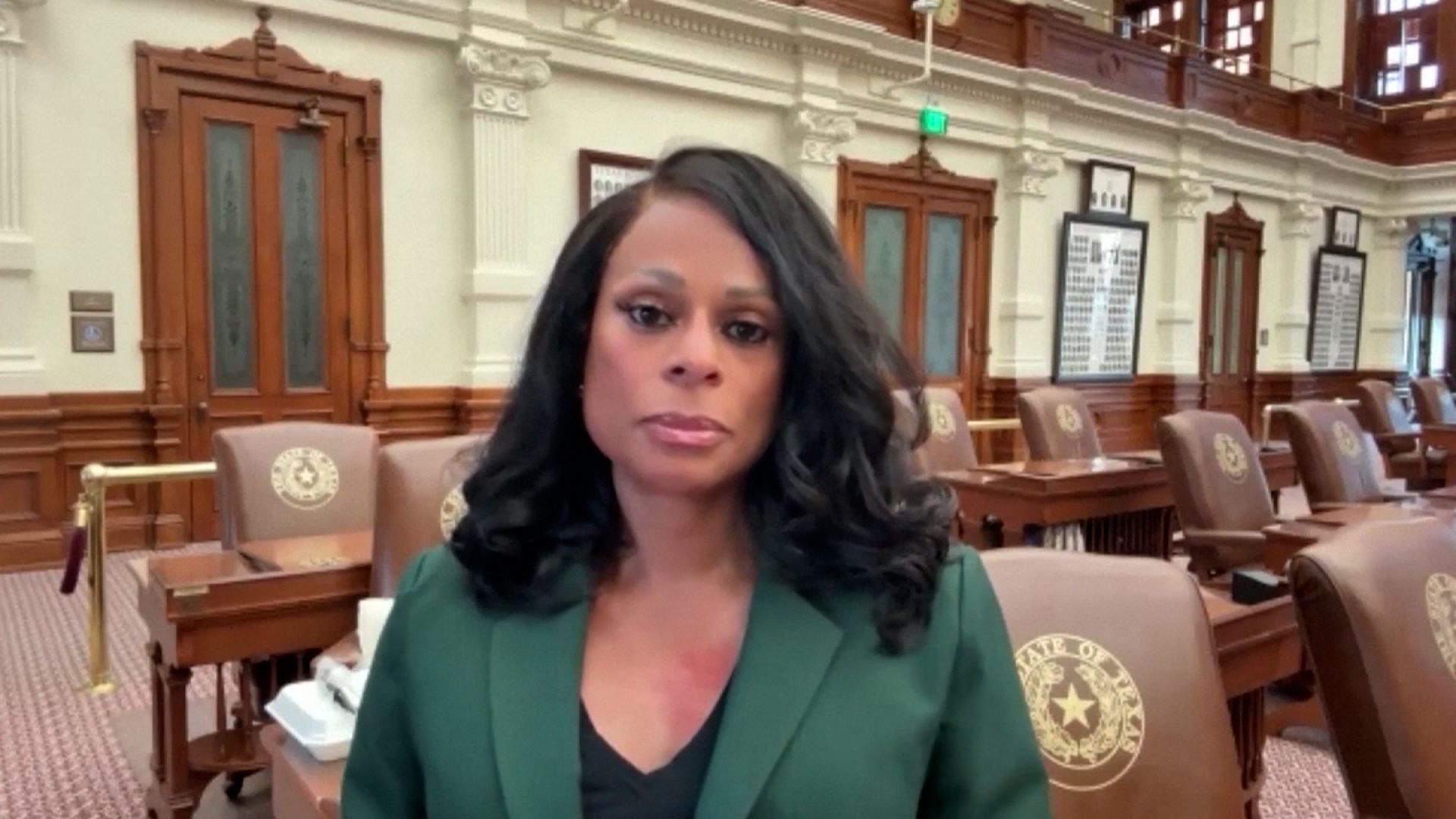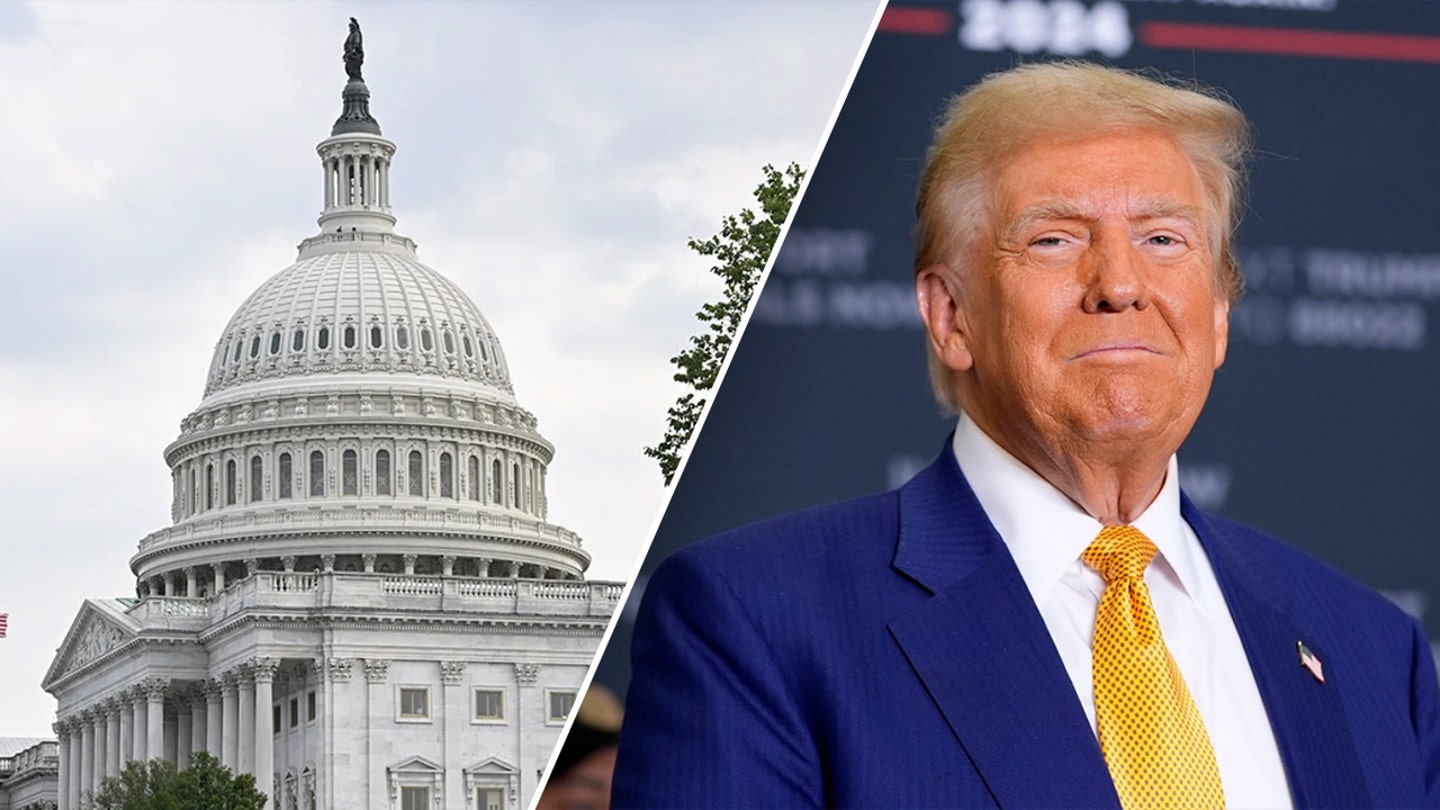
Illegal trucker ‘deported himself to California,' lawmaker says, revealing systemic crisis in transportation
Entities mentioned:
- Harjinder Singh: Self-preservation, Fear, Anxiety
- Brian Mast: Righteousness, Duty, Moral outrage
- Jay Collins: Justice, Duty, Determination
- Dave Kerner: Justice, Duty, Moral outrage
Article Assessment:
Credibility Score: 65/100
Bias Rating: 75/100 (Lean Right)
Sentiment Score: 25/100
Authoritarianism Risk: 55/100 (Mixed/Neutral)
Bias Analysis:
The article leans right, presenting a critical view of illegal immigration and California's policies. It heavily relies on quotes from Republican Rep. Brian Mast and focuses on the negative consequences of illegal immigration, with limited counterbalancing perspectives.
Key metric: Immigration Enforcement Effectiveness
As a social scientist, I analyze that this article highlights significant issues in the intersection of immigration policy, transportation safety, and state-federal law enforcement coordination. The case of Harjinder Singh exposes vulnerabilities in the commercial driver's licensing system, particularly for illegal immigrants. It also underscores the differences in immigration enforcement approaches between states like Florida and California. The article suggests systemic problems in vetting drivers and enforcing immigration laws, which directly impact public safety. This incident is being used to argue for stricter immigration enforcement and improved oversight in the transportation sector, potentially influencing policy decisions and public opinion on these issues.

CBS host defends Trump's efforts to de-wokify the Smithsonian's presentation of US history
Entities mentioned:
- Tony Dokoupil: Professional pride, Duty, Influence
- Donald Trump: Control, Legacy, Righteousness
- Smithsonian Institution: Duty, Influence, Legacy
- White House: Control, Legacy, Influence
- Vladimir Duthiers King: Professional pride, Duty, Justice
- Gayle King: Professional pride, Duty, Justice
Article Assessment:
Credibility Score: 70/100
Bias Rating: 55/100 (Center)
Sentiment Score: 45/100
Authoritarianism Risk: 55/100 (Mixed/Neutral)
Bias Analysis:
The article presents multiple viewpoints, including those supporting and questioning Trump's directive. However, it gives slightly more space to perspectives aligning with Trump's position, potentially indicating a slight center-right lean.
Key metric: National Unity
As a social scientist, I analyze that this article highlights a growing tension in how American history is presented in national institutions. The debate centers on balancing a critical examination of historical injustices with a narrative that instills national pride. This conflict reflects broader societal divisions on how to interpret and present American history. The involvement of high-profile political figures and media personalities in this debate suggests its significance in shaping national identity and unity. The potential changes to the Smithsonian's approach could have far-reaching effects on public understanding of American history and, consequently, on national unity and identity formation.

In Trump's America, we're not going to have mortgage fraud, vows federal housing director
Entities mentioned:
- Bill Pulte: Righteousness, Justice, Professional pride
- Adam Schiff: Self-preservation, Power, Influence
- Lisa Cook: Self-preservation, Professional pride, Influence
- Donald Trump: Power, Control, Legacy
Article Assessment:
Credibility Score: 45/100
Bias Rating: 75/100 (Lean Right)
Sentiment Score: 55/100
Authoritarianism Risk: 65/100 (Authoritarian Tendencies)
Bias Analysis:
The article leans right due to its framing of 'Trump's America' as a positive change and its focus on allegations against Democratic figures. The presentation on a conservative-leaning program ('The Ingraham Angle') further suggests a right-leaning bias.
Key metric: Financial Sector Stability
As a social scientist, I analyze that this article suggests a potential shift in regulatory focus and enforcement within the U.S. housing finance system under a hypothetical future Trump administration. The framing of the issue as 'Trump's America' implies a stark contrast to current policies. The allegations of mortgage fraud against high-profile individuals like a senator and a Federal Reserve governor indicate a politically charged environment surrounding financial regulation. This could impact financial sector stability by potentially increasing scrutiny on mortgage practices, which might lead to stricter lending standards or increased regulatory oversight. However, the lack of specific details about the allegations or proposed policy changes limits the ability to predict concrete impacts.

Filmmakers claim the late 'Superman' actor Christopher Reeve would have opposed Donald Trump
Entities mentioned:
- Christopher Reeve: Justice, Righteousness, Influence
- Donald Trump: Ambition, Power, Control
- Peter Ettedgui: Professional pride, Recognition, Influence
- Ian Bonhôte: Professional pride, Recognition, Influence
- Jeff Daniels: Recognition, Loyalty, Influence
- Bill Clinton: Power, Legacy, Influence
- Al Gore: Power, Legacy, Influence
- Ronald Reagan: Power, Legacy, Influence
- George W. Bush: Power, Legacy, Control
Article Assessment:
Credibility Score: 65/100
Bias Rating: 35/100 (Lean Left)
Sentiment Score: 45/100
Authoritarianism Risk: 30/100 (Generally Democratic)
Bias Analysis:
The article leans left due to its focus on criticism of Trump and positive portrayal of Democratic figures. It presents speculative views about Reeve's potential actions without counterbalancing perspectives.
Key metric: Political Polarization Index
As a social scientist, I analyze that this article potentially impacts the Political Polarization Index by framing Christopher Reeve's hypothetical political stance in opposition to Donald Trump. The filmmakers' assertions about Reeve's potential actions and opinions, if he were alive today, contribute to the ongoing narrative of division between political ideologies. This retrospective politicization of a deceased public figure could further entrench existing political divides, as it encourages viewers to align themselves with or against these projected stances. The article's focus on Reeve's past criticisms of Trump and support for Democratic candidates reinforces partisan narratives, potentially increasing political polarization among readers.

New Schiff leak claim from whistleblower echoes years of similar accusations
Entities mentioned:
- Adam Schiff: Righteousness, Power, Self-preservation
- Donald Trump: Revenge, Power, Self-preservation
- FBI: Duty, Professional pride, Control
- Kash Patel: Loyalty, Justice, Influence
- White House: Control, Influence, Power
- Democratic Party: Power, Control, Self-preservation
- Republican Party: Power, Control, Revenge
Article Assessment:
Credibility Score: 55/100
Bias Rating: 70/100 (Lean Right)
Sentiment Score: 30/100
Authoritarianism Risk: 45/100 (Mixed/Neutral)
Bias Analysis:
The article leans right, primarily due to its heavy reliance on Fox News sources and the framing of allegations against Schiff. While it includes some counterpoints, the overall tone and selection of quotes favor a conservative perspective.
Key metric: Political Polarization Index
As a social scientist, I analyze that this article highlights the ongoing political polarization in the United States, particularly surrounding the allegations against Senator Adam Schiff. The accusations of leaking classified information, if true, could significantly impact public trust in government institutions and elected officials. The back-and-forth nature of the allegations and denials between political parties further exacerbates the divide. This situation may lead to increased skepticism among the public regarding the integrity of political figures and the intelligence community, potentially affecting voter turnout and overall civic engagement. The establishment of a legal defense fund for Schiff also indicates the escalating nature of political conflicts and the financial resources being allocated to these disputes.

House Democrat clashes with activists over Israel 'genocide' as pro-Palestinian protests derail town hall
Entities mentioned:
- Rep. Wesley Bell: Duty, Professional pride, Unity
- Pro-Palestinian activists: Moral outrage, Justice, Righteousness
- Hamas: Power, Control, Revenge
- Israel: Self-preservation, Security, Justice
Article Assessment:
Credibility Score: 75/100
Bias Rating: 55/100 (Center)
Sentiment Score: 30/100
Authoritarianism Risk: 25/100 (Generally Democratic)
Bias Analysis:
The article presents multiple viewpoints, including those of Rep. Bell, protesters, and supportive attendees. While it leans slightly towards Bell's perspective, it also includes the activists' arguments and attempts to provide context for both sides.
Key metric: Political Polarization
As a social scientist, I analyze that this event demonstrates increasing political polarization in the United States, particularly surrounding the Israel-Palestine conflict. The town hall's disruption by pro-Palestinian activists highlights the growing divide between moderate Democrats and more progressive elements within the party. Rep. Bell's struggle to maintain order and discuss local issues amidst protests over foreign policy reflects the challenges faced by elected officials in addressing both domestic and international concerns. The intense emotions and accusations of genocide indicate a deepening rift in public opinion on the Israel-Gaza conflict, which could potentially impact future policy decisions and electoral outcomes.

Vance says National Guard is 'busting their a--’ in Washington, floats mission extension
Entities mentioned:
- JD Vance: Righteousness, Duty, Professional pride
- Donald Trump: Power, Control, Security
- National Guard: Duty, Obligation, Security
- Metropolitan Police Department: Duty, Security, Professional pride
- Brian Schwalb: Justice, Indignation, Self-preservation
Article Assessment:
Credibility Score: 65/100
Bias Rating: 55/100 (Center)
Sentiment Score: 40/100
Authoritarianism Risk: 65/100 (Authoritarian Tendencies)
Bias Analysis:
The article presents both the administration's justification and local opposition, providing a somewhat balanced view. However, it gives more space to the administration's perspective and uses emotionally charged language when describing the situation at Union Station.
Key metric: Crime Rate
As a social scientist, I analyze that this article highlights a contentious federal intervention in local law enforcement in Washington, D.C. The deployment of National Guard troops and federalization of local police to address crime issues raises significant questions about the balance of power between federal and local authorities. The administration's actions, while framed as necessary for public safety, are being challenged legally as a potential overreach of federal power and a threat to local autonomy. This situation could have far-reaching implications for federal-local relations, public safety policies, and the interpretation of emergency powers. The extension of the mission beyond the initial 30-day period could further escalate tensions and potentially set new precedents for federal intervention in local affairs.

Democratic Texas lawmaker passes 24-hour mark on state House floor after refusing GOP demand for law enforcement escort
Entities mentioned:
- Nicole Collier: Righteousness, Determination, Duty
- Dustin Burrows: Control, Power, Duty
- Texas House Democrats: Resistance, Justice, Self-preservation
- Texas Republicans: Power, Control, Ambition
- Beto O'Rourke: Moral outrage, Unity, Recognition
- Greg Abbott: Power, Ambition, Loyalty
- Donald Trump: Influence, Power, Control
- Gavin Newsom: Competitive spirit, Power, Revenge
Article Assessment:
Credibility Score: 75/100
Bias Rating: 45/100 (Center)
Sentiment Score: 35/100
Authoritarianism Risk: 65/100 (Authoritarian Tendencies)
Bias Analysis:
The article presents perspectives from both Democrats and Republicans, quoting multiple sources. While it gives more space to Democratic viewpoints, it includes Republican statements and contextualizes the broader political landscape.
Key metric: Electoral Integrity
As a social scientist, I analyze that this article highlights a significant conflict over redistricting in Texas, which has broader implications for national electoral integrity. The standoff between Democrats and Republicans over proposed redistricting plans underscores the intensifying partisan struggle for control of the U.S. House of Representatives. Rep. Collier's protest against what she perceives as intimidation tactics reflects growing tensions around voting rights and fair representation. The involvement of law enforcement in monitoring legislators' movements raises concerns about the balance of power between branches of government. This situation exemplifies how gerrymandering and redistricting battles are becoming increasingly contentious, with potential long-term impacts on democratic processes and voter representation. The article also reveals how state-level actions can trigger nationwide responses, as seen in California's proposed countermeasures, indicating a broader, more complex challenge to maintaining electoral integrity across the United States.

Conservative roadmap targets Medicaid, student loans for Trump's 'big, beautiful' sequel
Entities mentioned:
- Economic Policy Innovation Center (EPIC): Influence, Competitive spirit, Righteousness
- Republican Party: Power, Control, Righteousness
- Donald Trump: Legacy, Power, Ambition
- Democratic Party: Justice, Moral outrage, Self-preservation
- Paul Winfree: Influence, Professional pride, Ambition
- Brittany Madni: Professional pride, Influence, Duty
- Mike Johnson: Ambition, Power, Loyalty
Article Assessment:
Credibility Score: 70/100
Bias Rating: 65/100 (Lean Right)
Sentiment Score: 55/100
Authoritarianism Risk: 40/100 (Generally Democratic)
Bias Analysis:
The article leans right due to its primary focus on conservative policy proposals and reliance on conservative sources. While it mentions Democratic opposition, it provides more detailed coverage of Republican perspectives and strategies.
Key metric: Federal Budget Deficit
As a social scientist, I analyze that this article highlights a significant push by conservative groups to influence future Republican policy-making, particularly focusing on fiscal reforms and social conservative priorities. The proposed changes to Medicaid, student loans, and other federal programs could substantially impact the federal budget deficit. The emphasis on using budget reconciliation to achieve these goals suggests a strategy to bypass potential Democratic opposition, which could lead to more partisan policy-making and potentially increase political polarization. The focus on social conservative issues like abortion and transgender rights indicates an attempt to merge fiscal policy with cultural wedge issues, which could further divide the electorate and impact future elections.

Conservative 'playbook' to beat Democrats in court outlined in senator's new book
Entities mentioned:
- Sen. Eric Schmitt: Ambition, Righteousness, Competitive spirit
- Biden administration: Power, Control, Influence
- Dr. Anthony Fauci: Professional pride, Control, Influence
- Chinese Communist Party: Power, Control, Self-preservation
- Supreme Court: Justice, Duty, Influence
Article Assessment:
Credibility Score: 65/100
Bias Rating: 75/100 (Lean Right)
Sentiment Score: 55/100
Authoritarianism Risk: 45/100 (Mixed/Neutral)
Bias Analysis:
The article leans right, primarily presenting a conservative perspective. It focuses on Republican strategies and successes, with limited counterarguments or opposing viewpoints presented.
Key metric: Judicial System Effectiveness
As a social scientist, I analyze that this article highlights a growing trend of using the judicial system as a political battleground. Sen. Schmitt's approach of challenging Democratic policies through lawsuits represents a shift in how political disagreements are being resolved. This strategy could potentially impact the effectiveness and impartiality of the judicial system by increasing its politicization. The emphasis on appointing ideologically aligned judges further underscores this trend. While this may lead to more conservative-leaning rulings in the short term, it risks undermining public trust in the judiciary's independence and could lead to cyclical shifts in judicial interpretations as political power changes hands.